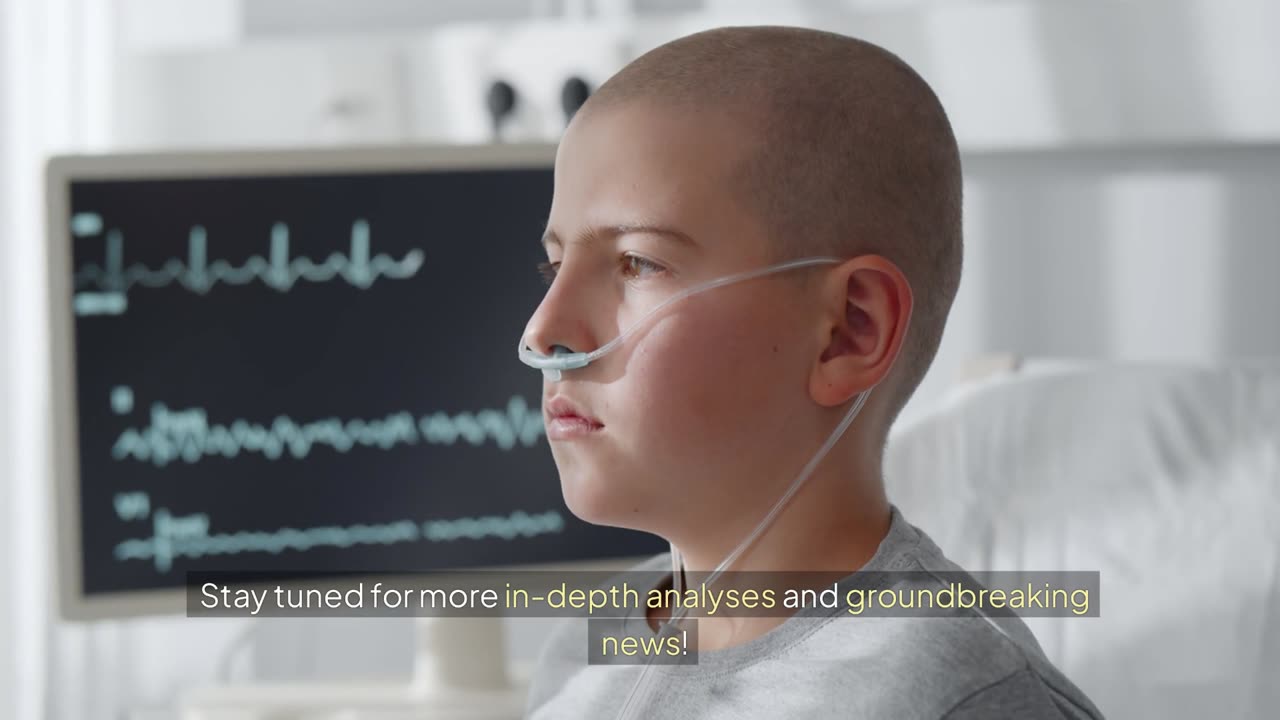Premium Only Content

Rising Cancer Rates in Gen X and Millennials: A New Health Crisis
Imagine facing a higher risk of cancer simply because of the year you were born. This alarming reality is affecting Generation X and millennials, who are now facing increased rates of several types of cancer compared to earlier generations. A comprehensive new study, published in the Lancet Public Health journal, sheds light on this troubling trend, highlighting the urgent need for action to address the underlying causes.
## Chapter 1: The Silent Surge - Cancer Rates on the Rise
### The Unexpected Trend
In a groundbreaking study by the American Cancer Society (ACS), researchers examined the incidence rates of 34 common cancers. The findings were startling: 17 of these cancers, including breast, pancreatic, and gastric cancers, are increasingly being diagnosed in progressively younger generations. For eight of these cancers, incidence rates have risen consistently with each successive birth cohort since 1920. This silent surge in cancer rates among younger generations signals a significant public health concern that cannot be ignored.
### The Numbers Don’t Lie
The study, which analyzed data from over 23 million cancer patients between 2000 and 2019, revealed that for the youngest birth cohort (born in 1990), cancer incidence rates ranged from 12% to 169% higher than those for the lowest-rate birth cohort. Pancreatic, kidney, and small intestinal cancers showed particularly alarming increases, with rates two to three times higher for the 1990 cohort compared to the 1955 cohort. These numbers paint a grim picture of the future cancer burden if no effective interventions are implemented.
## Chapter 2: Understanding the Birth Cohort Effect
### What Is the Birth Cohort Effect?
Birth cohorts refer to groups of individuals classified by their birth year, sharing unique social, economic, political, and environmental conditions during their formative years. These shared conditions influence their exposure to various cancer risk factors, leading to generational shifts in cancer incidence rates. Hyuna Sung, the study's lead author, emphasized that while these trends are clear, the exact reasons behind the rising cancer rates in younger generations remain elusive.
### The Role of Lifestyle and Environment
Researchers speculate that lifestyle changes and environmental factors could be driving this increase. Factors such as diet, physical activity, exposure to pollutants, and healthcare access have evolved significantly over the decades. The post-Baby Boomer generations, especially Gen X and millennials, have experienced unique shifts in these areas, potentially leading to increased cancer risks.
## Chapter 3: The Cancer Types on the Rise
### Breast Cancer
Breast cancer incidence has been rising steadily among younger women. While advances in detection and treatment have improved survival rates, the increasing number of cases among Gen X and millennials is concerning. Researchers are investigating potential links to lifestyle factors, reproductive patterns, and environmental exposures.
### Pancreatic Cancer
Pancreatic cancer, known for its poor prognosis, has seen a sharp increase in incidence rates among younger generations. The exact causes are still under study, but potential factors include obesity, smoking, and genetic predispositions. Early detection remains a challenge, making this rise particularly troubling.
### Gastric Cancer
Gastric or stomach cancer has also shown an upward trend in younger cohorts. Changes in diet, increased consumption of processed foods, and Helicobacter pylori infections are among the suspected contributors. Understanding these links is crucial for developing preventive strategies.
### Kidney and Small Intestinal Cancers
Kidney and small intestinal cancers are becoming more common in younger adults. These cancers are often associated with obesity and metabolic syndrome, highlighting the need for addressing lifestyle factors that contribute to these conditions.
## Chapter 4: The Implications and Urgent Need for Action
### Generational Shifts and Future Burden
Ahmedin Jemal, a senior author of the study, warns that the rising cancer rates among Gen X and millennials could serve as an early indicator of a future cancer epidemic. As these generations age, their elevated cancer risk will likely translate into a higher overall cancer burden, potentially reversing decades of progress in cancer prevention and treatment.
### The Call for Population-Level Interventions
To combat this looming health crisis, effective population-level interventions are essential. Public health initiatives focused on cancer prevention, early detection, and lifestyle modifications must be prioritized. Additionally, further research is needed to uncover the specific factors contributing to the increased cancer risk in younger generations and to develop targeted strategies to mitigate these risks.
## Chapter 5: What Can Be Done?
### Awareness and Education
Raising awareness about the rising cancer rates in Gen X and millennials is the first step toward addressing the issue. Public health campaigns should focus on educating these generations about the importance of regular screenings, healthy lifestyle choices, and understanding their family medical histories.
### Research and Policy Changes
Investing in research to identify the underlying causes of increased cancer rates in younger generations is crucial. Policymakers must support funding for studies that explore the links between lifestyle, environmental factors, and cancer. Implementing policies that promote healthy living environments, reduce exposure to carcinogens, and improve access to healthcare can also make a significant difference.
### Personal Responsibility
Individuals can take proactive steps to reduce their cancer risk by adopting healthier lifestyles. This includes maintaining a balanced diet, engaging in regular physical activity, avoiding tobacco and excessive alcohol consumption, and staying informed about cancer screening recommendations.
## Conclusion: A Collective Effort for a Healthier Future
The rising cancer rates among Gen X and millennials represent a serious public health challenge that requires immediate attention. By understanding the factors contributing to this trend and implementing effective interventions, we can work together to reduce the cancer burden on future generations. It's time for individuals, researchers, and policymakers to join forces and take action.
---
Thank you for watching! If you found this video informative, please like, share, and subscribe to our channel for more insights into health and wellness. Leave your comments below—what do you think about the rising cancer rates among Gen X and millennials? Let’s discuss how we can create a healthier future together. Stay tuned for more updates and in-depth analyses on crucial health issues!
-
 LIVE
LIVE
Rallied
4 hours ago $0.58 earnedSolo Challenges All Day
235 watching -
 1:47:36
1:47:36
Glenn Greenwald
3 hours agoJD Vance and Rand Paul Clash on Due Process: War on Terror Echoes; Has the U.S. Given Up on Confronting China? Ben Shapiro's Latest Falsehoods About Israel | SYSTEM UPDATE #510
60.8K29 -
 LIVE
LIVE
Nerdrotic
12 hours ago $2.49 earnedNerdrotic Nooner 513
384 watching -
 LIVE
LIVE
BigTallRedneck
2 hours agoRANKED FINALS W OMEGA
65 watching -
 LIVE
LIVE
Eternal_Spartan
9 hours ago🟢 Eternal Spartan Plays Final Fantasy 7 Rebirth Ep. 3 | USMC Vet | Join the Best Chat on Rumble
51 watching -
 LIVE
LIVE
megimu32
1 hour agoOTS: Ace Ventura & The Death of 90s Comedy
116 watching -
 LIVE
LIVE
We Like Shooting
14 hours agoDouble Tap 426 (Gun Podcast)
103 watching -
 LIVE
LIVE
Meisters of Madness
4 hours agoWuchang Returns with Madness & Ranked Finals
28 watching -
 LIVE
LIVE
Illyes Jr Gaming
1 hour agoBlack Ops 6 Action Reppin @Mystivis
51 watching -
 LIVE
LIVE
a12cat34dog
1 hour agoCRAZY NEW HORROR GAME :: Cronos: The New Dawn :: SPOOKY SEASON CAME EARLY {18+}
76 watching